1405 - Domestic Partners (Historical View)
** Effective: 4/20/2020 2:06:54 PM - 4/20/2020 2:14:58 PM **Status: Active
Change Notes
Authority updated: Government Code Section 22771
Category
Benefits and Insurance
Audience List
- Chiefs of Administration
- Employee Relations Officers
- Personnel Officers
- Personnel Transactions Staff
- Personnel Transactions Supervisors
Synopsis
This policy:
Provides information on the application of state-sponsored benefits for domestic partners.
Introduction
Same-sex marriages are legally recognized in California consistent with the June 26, 2013 United States Supreme Court decisions. Pursuant to Family Code sections 297 to 299.6, registered domestic partners in California have the same rights, protections, and benefits as spouses.
Statement
State departments will accept marriage certificates from an employee with a same-sex spouse to determine state-sponsored benefit eligibility and enrollment without regard to gender. Marriage certificates from any jurisdiction (a California county, another state, or another country) can be accepted as proof of marriage.
To be eligible for state-sponsored benefits, a domestic partnership must be registered with the California Secretary of State. An eligible same-sex domestic partnership is between persons who are both at least 18 years of age. An eligible opposite sex domestic partnership is where one person is over the age of 62 and the other is at least 18 years old. A domestic partnership validly formed in another jurisdiction that is substantially equivalent to a registered domestic partnership in California may also be recognized.
The procedures to enroll a domestic partner in each state-sponsored benefit program and the required verification documents to substantiate the dependent as an eligible beneficiary are in the Benefits Administration Manual (BAM) on the Department of California Human Resources (CalHR) website and the State Health Benefits Guide on the California Public Employees’ Retirement System (CalPERS) website.
Imputed Tax Liability
When a state employee adds a domestic partner into a state-sponsored dental, vision, or health plan, the employee will have an imputed tax liability based on the amount of the increase in state contribution to benefits paid for the domestic partner, unless the domestic partner is claimed as a dependent for federal income tax purposes as authorized by the Internal Revenue Service.
In order to remove the imputed tax liability when enrolling a domestic partner into a state dental or health plan, CalHR requires the Domestic Partner Affidavit (Form CalHR 680) to be completed and signed by the state employee.
When an employee no longer declares the domestic partner as a dependent for tax purposes, the employee is required to notify their departmental human resources (HR) office in writing of this fact immediately. If the employee does not do so, they may be held liable for any taxes due based on when the dependency ended.
By signing the Domestic Partner Affidavit, the employee also agrees to permit the state, upon request from an authorized representative of CalHR or the State Controller' Office or their designee, full access to to their tax records, domestic partnership filing documents, and/or any other supporting documentation as needed by the state to verify that the individual otherwise qualifies as a dependent for federal income tax purposes.
Currently, the federal government does not recognize a domestic partner as a dependent for tax purposes. As such, employees enrolled in a FlexElect Program Medical Reimbursement Account are unable to claim reimbursement for a domestic partner’s medical expenses, unless the domestic partner otherwise qualifies as a dependent under Internal Revenue Code section 152. In addition, the federal Family Medical Leave Act (FMLA) does not protect leave taken to care for a domestic partner. However, the California Family Rights Act (CFRA) recognizes a domestic partner as a family member, and therefore can be utilized for such leave protection.
Application
None.
Authorities
- 26 U.S. Code section 152
- Bargaining Contracts - MOUs
- California Code of Regulations, title 2, section 599.920.5
- Family Code sections 297 to 299.6
- Government Code Section 22771
- Government Code 12945.2
Resources
FAQs
- Registered Domestic Partners and Individuals in Civil Unions: Frequently Asked Questions
Forms
- CalHR 680: Domestic Partner Affidavit
PML
- PML 2001-002: PML 2001-002 - 1/4/2001 - Affidavit for Domestic Partners Being Claimed as Economic
- PML 2005-002: PML 2005-002 - 1/20/2005 - Domestic Partner Benefits Impacted by AB 205, Chapter 421
- PML 2013-024: PML 2013-024 - 7/19/2013 - Same-Sex Spouses and Domestic Partnerships: Special Open Enrollment, Benefit Eligibility
Web Pages
- Benefits Administration Manual section 2203: Pre-Tax Parking Program
- California Secretary of State: California Secretary of State
Authorized By
Contact Person
Milly Romero-Salas
Program Manager,
Phone: 916-322-2401
Fax: 855-290-0158
Email: milly.romero-salas@calhr.ca.gov
